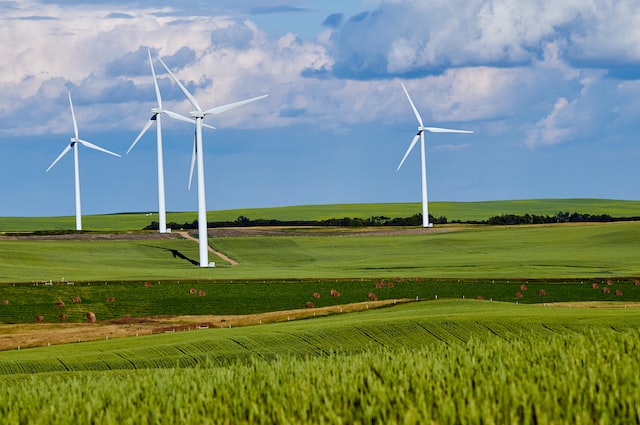A recent report by McKinsey & Company has called out the need for governments, both in the UK and abroad, to re-double efforts to decarbonise. No matter what modern country we’re discussing, the government’s role can’t be overstated in the journey to halt Climate Change. [Source: Target Net Zero: A Journey to Decarbonising the Public Sector]
McKinsey has stressed the point that while governments have made NetZero pledges as part of the UN’s 2015 Paris Agreement, they’re still not doing enough to make solid actions towards those goals.
Why does this matter?
It matters because the public sector is one of the biggest spenders in our economy – and government spending is matched by growth in the private sector. According to McKinsey’s report:
“As the world wrangles with how to amplify global decarbonization efforts, public-sector entities will play an increasingly critical role not only in setting but also in realizing bolder agendas. Public-sector spending accounts for 47 percent of GDP in the European Union, 44 percent in the United States, 39 percent in Japan, and 18 percent in India. Reducing public-sector emissions could be a vital component of most national decarbonization strategies. [Cited source: Government Spending to GDP by Country / G20. Trading Economies]
What are the challenges?
Governments may face a range of issues in committing to their NetZero goals. Firstly, making changes to a supply chain often requires a lengthy approvals process not seen in the private sector. Change may take longer and be less agile than a decarbonisation effort an SME could make, for example.
Also, departments within government operate in-line rather than in competition with each other – and this lack of competition may result in less drive to be sustainable.
There may be less cohesion than desirable amongst varying government services, and therefore efforts to reduce fossil fuel dependency may take a piecemeal approach.
It’s not all bad news
Despite these challenges there is steady progress being made towards NetZero. In the UK, it’s generally accepted that we surpassed the peak of carbon emissions in 2004, and emissions were 31% lower than peak in 2019, the latest year data is available. [Source: Gov.uk published stats]
That means the UK’s Carbon Footprint is lowering every year – not accounting for anomalies caused by the lockdowns during the Covid-19 pandemic. This is not a fact to be taken lightly – and good news about NetZero needs to be shared more widely!
How are we doing locally at reducing the dependency on fossil fuels?
In the Republic of Ireland, the Climate Action and Low Carbon Development Act was passed in 2021 and it includes a pledge to “improve the public sector’s energy efficiency by 50 percent as of 2030.”
Here in Northern Ireland, the stated goal is to “to reduce energy wastage by government by 30% by 2030.”
But it’s still playing out, as we’re progressing towards these goals.
In Northern Ireland, the Department for the Economy has taken a bold step forwards by acting to modernise its energy metering and analytics in a huge swathe of public sector buildings, including museums, hospitals, office buildings, and councils. These installations have been ongoing since 2022, thanks to iTouch Smart Energy’s LoRaWAN-based energy monitoring and analytics solution. Our installation partner, Altas World, was instrumental in securing the contract using its long-term relationships in the public sector in Northern Ireland.
As a small country, Northern Ireland has a huge benefit in “joined-up thinking.” One contract such as the above, affecting more than 2,000 properties – details outlined here – can make a huge difference to the decarbonisation of the public sector.
What needs to happen to decarbonise our government?
Looking at the problem from a more global perspective, McKinsey offered four goals for its vision for decarbonising the public sector:
- Decarbonising buildings and operations.
- Creating more sustainable travel policies and fleets
- Introducing new procurement criteria
- Promoting workforce behaviour
We are very much positioned to assist with Goal #1 by reducing the energy consumption in public sector buildings. The McKinsey report stated that:
“To decarbonize existing buildings, public-sector organizations could use a number of levers. These include improving insulation, maximizing the use of LED lighting, replacing oil and gas boilers with heat pumps, certifying buildings, and adopting technologies (such as lighting and temperature control sensors) to reduce energy consumption. Internal campaigns could make employees more aware of energy consumption and encourage new kinds of behavior. Public entities could also opt for carbon-neutral designs in new buildings and install green roofs, which could reduce energy consumption, improve water management, and foster biodiversity.”
We’re confident that iTouch can assist any government body with gaining an in-depth, real-time view of energy usage and therefore create strategies to lower energy consumption. Interested parties should get in touch with our Sales Director, John Nesbitt, on john.nesbitt@itouchsmarttech.com.
Our ultimate goal is to set our younger generations up with a more sustainable future – and decarbonisation is clearly the path forwards.




